A review of the Lehigh University Police Department has determined a number of issue areas in diversity and trust, as shared in the Lehigh University Police Department Review Report.
A review of the LUPD was conducted by the LUPD Review Committee starting in November 2020 and concluding in July 2021. A report of their process, findings and recommendations was shared with the campus community in an email on April 19, 2022.
The six-member LUPD Review Committee was set up by the university’s Anti racism Task Force and included members of faculty, administration and students.
As stated in the report, the review committee found: the LUPD lacks diversity in leadership; there is a lack of trust between BIPOC and LGBTQ+ communities and LUPD officers; there is a general lack of trust around law enforcement within Lehigh’s community; and the community would like more transparency and restorative justice practices from the LUPD.
LUPD Police Chief Jason Schiffer said he thought the review was thorough and fair.
The report was first set to be released in fall 2021. It was then communicated by university administration that this report would be shared in early 2022, before it was finally set to be released in April of this year.
Vice President for Equity and Community Donald Outing said one of the reasons for the delay was that the university shifted their focus to completing the university’s strategic Diversity, Inclusion and Equity Plan. He said they wanted the DI&E plan to come out before the LUPD review report.
He said after the DI&E plan was complete it took additional time to compile the LUPD review report.
Outing said the LUPD review committee was created to review all of the LUPD’s practices, policies and procedures to determine if any of them explicitly or inadvertently is the cause of or contributes to inequities.
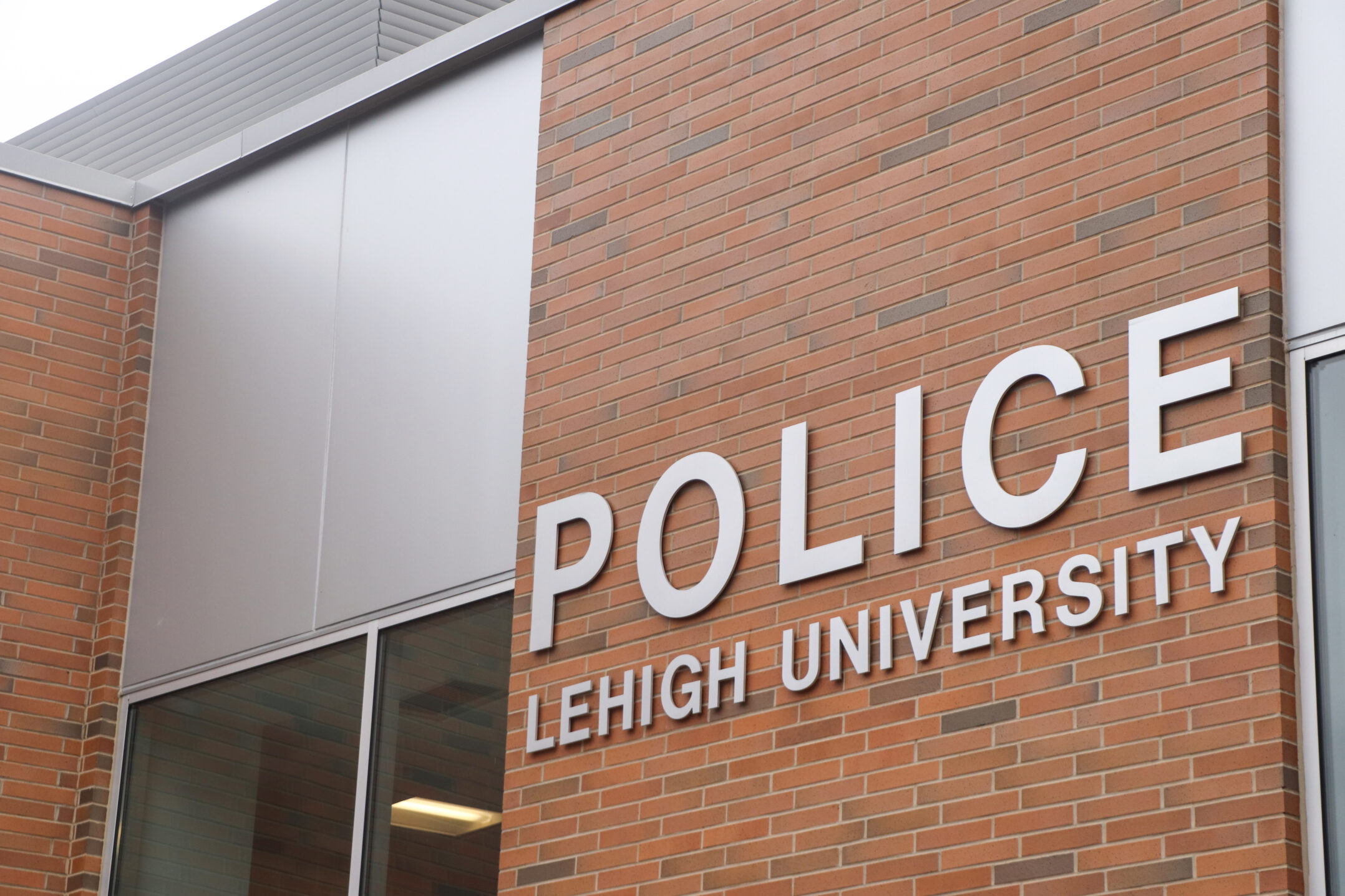
The outside of the Lehigh University Police Department on March 1. The department is locate on the edge of campus at 321 E Packer Ave. in Bethlehem. (Xiaozhe Zhang/B&W Staff)
The LUPD Review Committee was charged with reviewing the policies that govern the activities of the LUPD, as well as the implementation of these policies, the report said.
“We want to look at practices, policies and procedures to better understand our relationship between historically marginalized communities and the Lehigh Police Department,” Outing said. “We’re doing this in other areas as well. We’re looking at equity studies around salaries, but this was a part of that commitment to review the practices, policies, policies and procedures of the Lehigh University Police Department.”
He said this is the first time they have done a review of the LUPD in this nature that is specifically focused on practices, policies and procedures as they relate to diversity, inclusion, equity and justice.
“I think part of the purpose of a review committee like this is to expose things that could present barriers that aren’t readily apparent,” Schiffer said.
Outing said the ultimate goal of sharing this report is to provide transparency.
THE LUPD REVIEW PROCESS
The work of the LUPD Review Committee included examining recruitment and retention of BIPOC officers, training, community communication and effective policing while building public trust, the report said.
Member of the LUPD Review Committee Michael Kimmel, ‘23G, said their group met monthly and they would each have specific duties that they would come together to update each other on.
Kimmel is a grad student in the College of Education for school counseling. Before that, he got a degree in criminal justice and did work in wrongful convictions. He said his background and knowledge about the criminal justice system is what made him interested in joining the review committee.
Kimmel said growing up he had run-ins with police officers.
“When you are on the other side of a person that has a gun (and) is ready to pull it on you, you are not so much a person anymore. You’re a target, you’re a threat. So I can attest to what it feels like to be a threat,” Kimmel said. “A lot of the trauma from those instances really influenced the work that I would come to do later on.”
The committee conducted their investigation through a series of steps. One of their methods being small group sessions with members of the Lehigh community and LUPD members.
Kimmel said they had small discussions about policing with people from different minority groups talking to Schiffer and other officers.
Schiffer said these listening groups were open and encouraged for anybody in their department to attend.
“There’s a lot to be said about (Schiffer’s) willingness to improve and improve on his own recognition of his own privilege and biases and things like that,” Kimmel said. “He’s definitely, I would say, an example of what police chiefs could be.”
Director of the Office of Multicultural Affairs and chairman of the LUPD Review Committee Chad Williams said one of the big outcomes of the committee was the listening sessions among the police, committee and groups of community members representing communities that are often marginalized and victims of bad policing. He said these listening groups allowed people to talk about their experiences with the LUPD. They could talk about some things they weren’t happy about and instances in which they experienced or witnessed unfair treatment. Williams said it was a chance for the LUPD to hear how people perceived them.
“I think the listening groups were very powerful,” Schiffer said. “It was, I think, intentionally difficult for us to hear what some of the experiences are, whether they’re experiences with our department specifically or law enforcement in general, and I think there were a lot of very valuable lessons learned.”
Williams said he used to be in the mindset that he hated the police for all of the terrible things they had done to him personally, to other people that he knew and people around the country. Historically, the police have been called an oppressor for BIPOC and working class people, Williams said.
“There’s a great song by the N.W.A. for the old school, a long, long time ago. I lived by that song: ‘F— Tha Police,’ for the majority of my life,” Williams said. “It is my engagement with Chief Schiffer, it is my engagement with LUPD police officers that have aided … my transformation about that.”
Associate professor and member of the review committee Holona Ochs said she has had positive personal experiences with the LUPD. She also noted that she is mostly read as having white privilege. She said that from the listening sessions, she knows this positive experience is not universal across campus.
Ochs has researched policing in her studies and currently teaches a course called “The End of Policing? Politics of Social Control.”
The review report also noted the lack of diversity in the LUPD.
“There is no doubt that the staffing and especially the leadership of LUPD is predominately white and male,” the report said.
Another method used by the committee to assess the LUPD was a survey to gauge community perception. Surveys were conducted and drew in more than 500 respondents.
The report said the takeaways from the survey were that: BIPOC and LGBTQ+ community members reported high levels of negative interactions with the LUPD; there were low levels of trust toward the LUPD among members of those BIPOC and LGBTQ+ communities on campus; members of the campus community wanted to engage with LUPD at more events to build relationships; and feedback indicated support for the existence of a LUPD Review Committee and thought it would build trust.
Kimmel said he worked on a climate survey that was sent out.
He said in the survey results there was a fair amount of people who thought the LUPD was doing its job well, compared to other police departments.
Kimmel said the demographic results from the survey reported a majority of white participants and very few BIPOC and LGBTQ+ participants. He said in sifting through individual responses, it appeared there were white allies who shared issues on behalf of BIPOC and LGBTQ+ friends.
Further, the review committee conducted an analysis of LUPD through their documentation, data, policies and procedures.
“We went through like literally everything and met as a group and discussed everything, flipped it around, and analyzed it to make it a more inclusive police force,” Kimmel said.
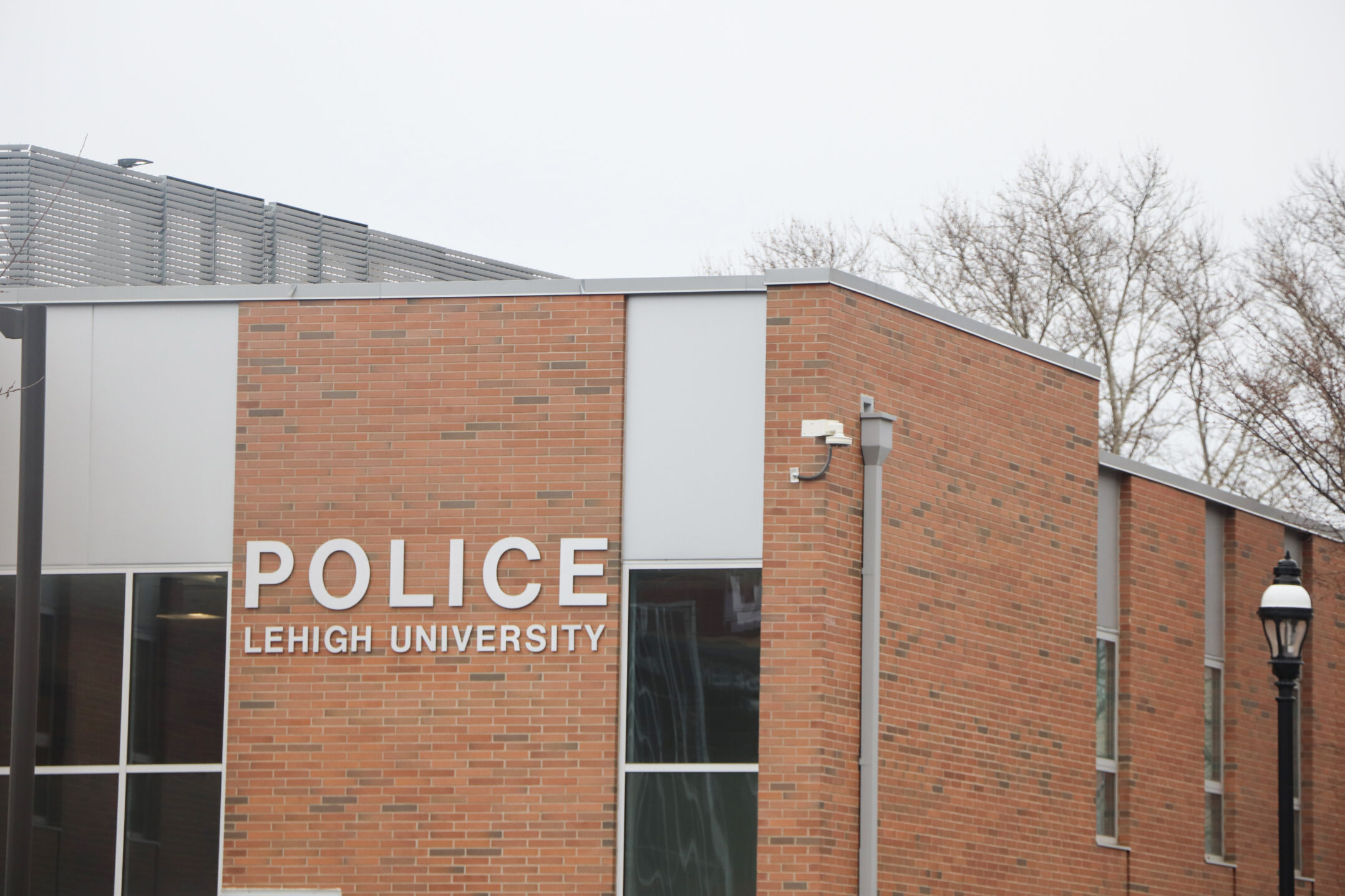
The outside of the Lehigh University Police Department on March 1. The department is locate on the edge of campus at 321 E Packer Ave. in Bethlehem. (Xiaozhe Zhang/B&W Staff)
Ochs said they did not meet any resistance from LUPD in exploring all of their policies, their budget or their practices.
Schiffer said there was an effort to be as open and transparent as possible in giving the review committee everything they asked for. He said it was a bit of a challenge when the requests for documentation came into the office.
“It was a little bit like being involved in a lawsuit where you get a request for production of documents,” Schiffer said.
He said there were a lot of questions and dialogue back and forth between the office and the LUPD Review Committee.
“Instead of fighting and having a fight and a tug of war for all this stuff, they were pretty open and accessible,” Williams said. “That’s the type of relationship you want to have and that demonstrates a police force that is at least open and willing to thinking about an equitable restorative model of public safety.”
THE NEXT STEPS
The LUPD Review Committee used their investigation to inform recommendations for the department and the university.
The proposed goals in the report were: building an inclusive LUPD staff and culture; increasing transparency and shared decision making with the campus community; integrating and promoting restorative justice; and demonstrating a commitment to community building and engagement.
“We were very clear about decreasing the policing footprint on campus,” Ochs said
In the report, the committee outlines a series of specific measures aimed to accomplish these goals. The full report includes notes from the university stating which of these measures have been completed, are in process or are under review. In total, there are 36 suggested tactics laid out in the report to address the goals of the committee. Of which, 10 are marked as completed, nine in process and 17 under review.
“I was happy that by the time the report was released, there were things that we had already been working on and some of which that we already accomplished,” Schiffer said.
Schiffer said that within the recommendations there was nothing that was very surprising or a non-starter. Schiffer said that he has many common goals with the members of the committee.
“I think we’re in a much better place,” Schiffer said. “There’s definitely a lot of room for discussion and I think everyone involved in the process agrees that it’s a process.”
Ochs said she saw a number of changes happen already that seemed to come directly from the listening session.
One example that she gave of the LUPD’s responsiveness was during the review when the department had purchased some hybrid vehicles to address concerns from sustainability advocates. In response to the new vehicles some individuals expressed that this felt like the police were being sneaky and that they were everywhere, and some felt the initiative was predatory, Ochs said.
She said in a matter of weeks the department had purchased cruise lights for the cars to combat this notion.
Ochs said this instance did impress her but she noted the police were aware they were under review at that time and being watched.
“I just thought, OK, good. That’s what you’re supposed to do. Now, let’s make that always,” Ochs said.
Williams said a recommendation given was that the review committee should be institutionalized, so it is always present as long as there is a police force at Lehigh.
“As long as we have police on campus — (an) accredited police force with guns, who are able to use deadly force if necessary — then there should always be some kind of external review in check. That should not be left to the police policing themselves. As we can see in this country, that just does not work,” Williams said.
Schiffer said he supports the idea of having a review committee be a permanent part of the university.
Williams said putting the LUPD through this kind of a review sets the tone and a template for how other offices should be thinking. He said it’s not enough just to say you support anti-racism.
“Does your budget support anti racism? Does your policy support anti racism? Do(es) how you work support anti racism?” Williams said.

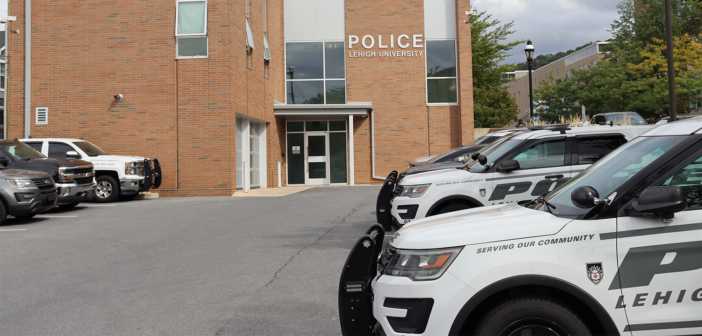

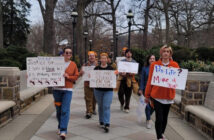

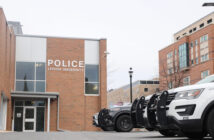
Comment policy
Comments posted to The Brown and White website are reviewed by a moderator before being approved. Incendiary speech or harassing language, including comments targeted at individuals, may be deemed unacceptable and not published. Spam and other soliciting will also be declined.
The Brown and White also reserves the right to not publish entirely anonymous comments.
1 Comment
I can’t believe that Chief Schiffer is going to endure with this kind of bureaucratic oversight for very long. He reports to the President of the University & now he has to endure an oversight committee to criticize him for being a white male & having predominately white straight male police officer leaders.
Generally people that gravitate to policing have been white males & especially on predominately white neighborhoods like Bethlehem. Queers historically have not gravitated to policing nor have females. Therefore you don’t have an array of qualified experienced leaders outside the white male arena.
I can’t imagine what kind of socialist agenda Prof Ochs is preaching in her course on “politics & social control”